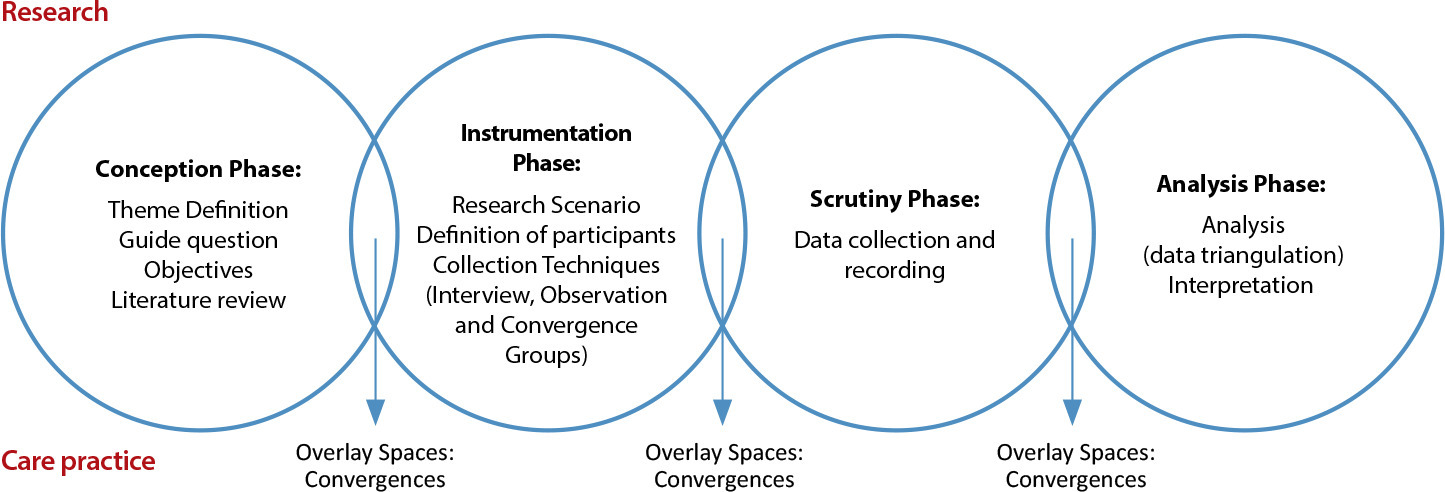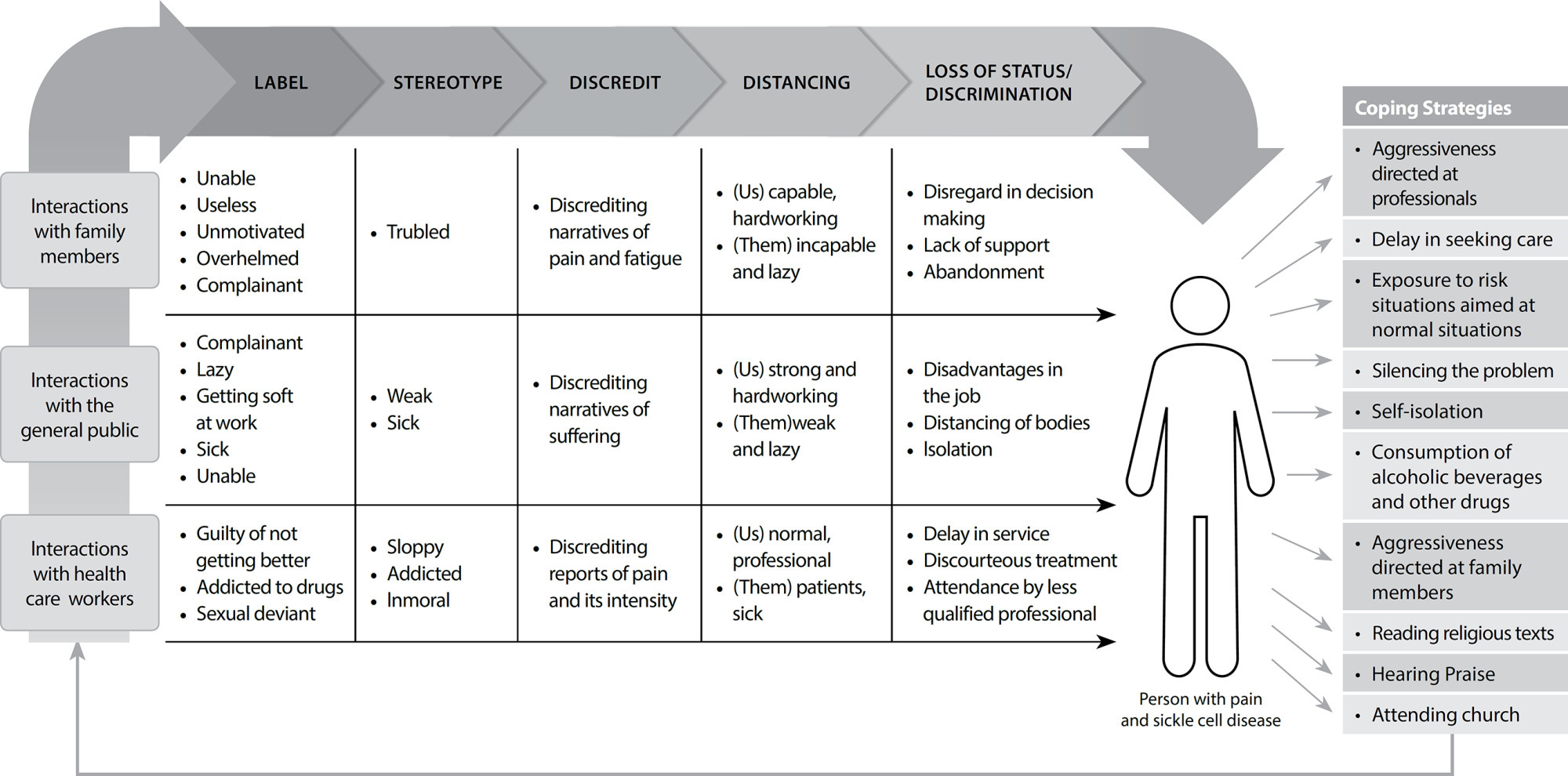-
ORIGINAL ARTICLE
Nursing protocol for children with sickle cell disease in emergency room: a convergent-care approach
Revista Brasileira de Enfermagem. 2022;75(Suppl 2):e20210908
07-18-2022
Resumo
ORIGINAL ARTICLENursing protocol for children with sickle cell disease in emergency room: a convergent-care approach
Revista Brasileira de Enfermagem. 2022;75(Suppl 2):e20210908
07-18-2022DOI 10.1590/0034-7167-2021-0908
Visualizações0Ver maisABSTRACT
Objective:
to describe the methodological process of developing a nursing care protocol for children with sickle cell disease in the emergency room.
Method:
convergent care research, carried out in a public pediatric hospital in the state of Bahia, with 12 emergency nurses specialist. Data production took place between July 2020 and April 2021, with semi-structured interviews, observation in a field diary and convergence groups, according to the research phases: conception, instrumentation, scrutiny and analysis.
Results:
The final result was the construction of a nursing care protocol for children with sickle cell disease in the emergency room for use in the study field.
Final considerations:
the Convergent Care Research proved to be an excellent methodological procedure for intervention in the health service, whose nursing care protocol was based on the reflections of professionals on evidence-based practices, whose consensus can enable safe and quality care.

-
ORIGINAL ARTICLE
Self-care deficits in women with leg ulcers and sickle cell disease
Revista Brasileira de Enfermagem. 2019;72(suppl 3):72-78
12-13-2019
Resumo
ORIGINAL ARTICLESelf-care deficits in women with leg ulcers and sickle cell disease
Revista Brasileira de Enfermagem. 2019;72(suppl 3):72-78
12-13-2019DOI 10.1590/0034-7167-2018-0005
Visualizações0Ver maisABSTRACT
Objective:
to identify self-care deficits in women with leg ulcers and sickle cell disease.
Method:
a qualitative, descriptive, exploratory approach with 14 women. The collection was performed from December 2015 to January 2016, while the analysis was supported by Orem’s Self-Care Deficit Theory.
Results:
self-care requirements are not fully met. The following were identified as universal: balance between loneliness and social interaction, rest and proper nutrition; development: inability to perform work, abrupt changes in the environment due to hospitalization, educational deprivation and dropout; health deviations: ulcer recurrences, pain, changes in skin appearance and gait changes.
Conclusion:
nursing care for women with leg ulcers and sickle cell disease requires planned actions for comprehensive care.
-
RESEARCH
Self-care of men with priapism and sickle cell disease
Revista Brasileira de Enfermagem. 2018;71(5):2418-2424
01-01-2018
Resumo
RESEARCHSelf-care of men with priapism and sickle cell disease
Revista Brasileira de Enfermagem. 2018;71(5):2418-2424
01-01-2018DOI 10.1590/0034-7167-2017-0464
Visualizações0Ver maisABSTRACT
Objective:
To identify self-care demands of men with sickle cell disease and priapism and describe self-care measures in light of Orem's Self-Care Theory.
Method:
This is a descriptive exploratory study with qualitative approach conducted with nine men with a history of sickle cell disease and priapism. Data were analyzed using Orem's Self-Care Theory.
Results:
Some demands were identified: from universal self-care - difficulty in social interaction and solitude, changes in self-image, self-esteem and sexual activity; from development - the experience with priapism and little knowledge about the pathophysiology of the disease; regarding health deviations - pain crises.
Conclusion:
Orem's theory allowed to identify self-care demands, which are essential for the nursing care provided for men with priapism. Nursing has an essential role in the measures for the different demands presented.




